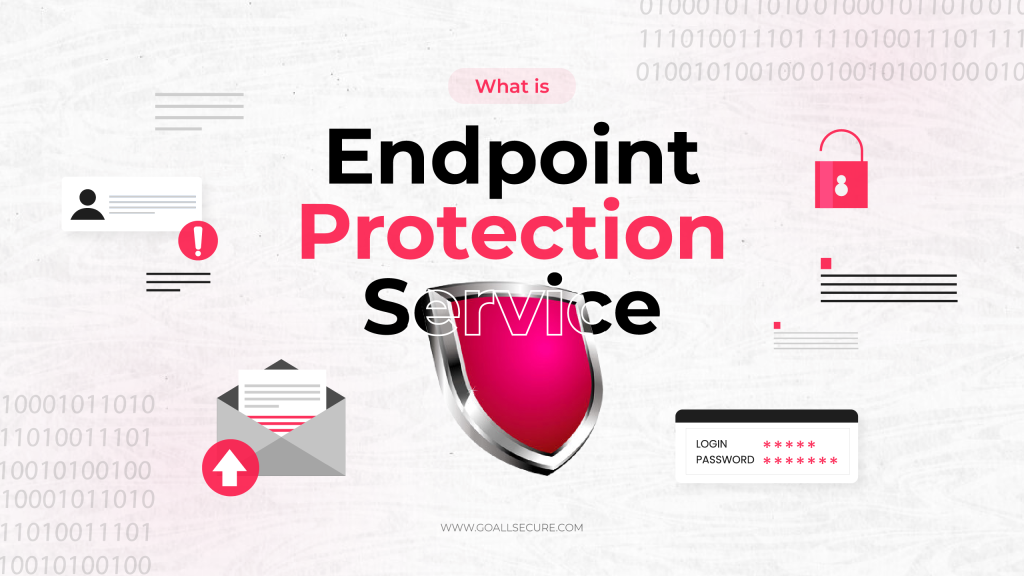The modern security scenario is entirely different in the workplace today due to the technological shift. Business networks are accessed by partners, vendors, and staff members who frequently connect from far-off places using their own devices. While this has made doing business internationally easier, it has also brought about several new cybersecurity risks that companies now have to deal with regularly. One such looming risk is endpoint security. About 75% of enterprises were affected by a targeted endpoint attack in 2023 that compromised their IT infrastructure, and almost 68% of endpoint devices saw an increase in cyber attacks. No matter the size of the company, endpoint security is a crucial component of a cyber security programme. Endpoint Security guards against malevolent internal and external threats on PCs, laptops, servers, and other fixed-function devices. In this blog, you will learn about endpoints, how to protect them, and why they are crucial for your business.
What Is Endpoint Protection Service
The practice of defending workstations, servers, and other devices against malevolent threats and cyber attacks is known as endpoint security. Businesses can protect servers located on a network or in the cloud or devices used by employees for work from online attacks by implementing endpoint protection services. If you are wondering what endpoints are, they can be any gear or equipment, virtual or actual, that connects to the corporate network. Endpoints can include everything from servers, medical equipment, Internet of Things (IoT) devices and sensors, industrial control systems (ICS), point-of-sale (PoS) devices, ATMs, printers, network switches, routers, wearables, and much more. End-user devices include desktop PCs, laptops, tablets, and smartphones. From a cyber security perspective, they are the network’s entry point, and endpoint security shields these devices to protect the network. A company’s perimeter is more protected from known and unknown threats when all the endpoints are accounted for. In the absence of a proper barrier, these attacks, which might be malware or non-malware, will be able to steal data, ruin infrastructures, or result in monetary losses.
Importance of Endpoint Security
The significance of endpoint security in safeguarding the IT infrastructure in 2024 cannot be overstated. One of the largest categories of cyber security is endpoint security. Network security, data security, and application security are all complemented, overlapped, and integrated with it. Furthermore, to create robust network or IT infrastructure security and guarantee that networks are safe and capable of responding to changing threats, endpoint security is essential. Considering the increasing sophistication of cyber threats, securing endpoints guarantees critical data confidentiality, integrity, and availability. It is a step toward data privacy rules, and taking precautions against data breaches that could seriously affect a person’s money and reputation is also crucial. In essence, a business IT network is a collection of endpoint connections that must be shielded.
Endpoint security is also crucial for individual customers, but it usually doesn’t need specialised endpoint security software. Businesses that handle hundreds or thousands of employee endpoint devices are particularly concerned about endpoint security. An attacker trying to get access to an otherwise secure business network may use an unsecured endpoint as a launching pad. Thus, businesses must deal with an increase in the variety of endpoints due to the expansion of the Internet of Things and the growing number of endpoints brought on by the growth of remote working. Companies must safeguard their data and make sure they can see sophisticated cyber threats. Furthermore, any endpoint may serve as a possible point of entry for hackers. Thus, endpoint security and integrity need to come first.
How Endpoint Protection Works?
We are clear on the goal of endpoint security; it is to safeguard endpoints, regardless of their permanent or temporary network connectivity. Now, this has to be done before setting up a new device, and continuous monitoring is required in the future. Endpoint security accomplishes this by inspecting files as they are added to the network and cross-referencing them with a growing threat intelligence database. Before a device connects to the network infrastructure, endpoint security ensures it complies with the organisation’s security criteria. It employs various techniques, including firewalls, antivirus, email screening, and more. Advanced tools such as Endpoint Detection and Response (EDR) also come in handy. These technologies help identify, stop, and mitigate attacks before compromising data or breaching a network.
Apart from the essential threat protection, endpoint security provides administrators access to their company network via a centralised management portal. This makes it easy to monitor, safeguard, look into, and handle incidents when they occur. Endpoint security comes with several tools and techniques; some elements of endpoint security are:
- Antivirus and Anti-Malware Software
- Endpoint Detection and Response or EDR
- Application Control
- NAC (Network Access Control)
- Data Loss Prevention (DLP)
- Firewalls that stop dangerous apps and unused ports
- Email filters to identify and stop malicious attachments and phishing emails
- Regular software upgrades and patching
Endpoint Protection Software Vs. Antivirus Software
Traditional antivirus software has given way to all-encompassing defence against sophisticated malware and emerging zero-day threats. However, it should be noted that endpoint security is much more than just that. For instance, threat prevention for endpoint security differs significantly from antivirus software. Endpoint security solutions safeguard not a single device but the entire corporate network and all the endpoints that connect to it. In many aspects, endpoint protection platforms differ significantly from traditional antivirus software. EPPs improve overall security by offering insight into the whole company network from a single location, unlike antivirus software. Additionally, they simplify administrative duties by providing automated updates instead of user-dependent manual updates. The use of cutting-edge threat detection techniques like behavioural analysis guarantees continual protection.
The comparison between endpoint security and antivirus software is not to pick one but rather to ascertain that one can only be complete with the other. While antivirus software must be installed on all devices, endpoint protection entails much more. Businesses can identify, get rid of, and stop malware from infecting systems with the aid of antivirus software. However, hackers have developed software that deliberately aims to bypass antivirus protections; in this case, when antivirus software fails, administrators can also use security controls, firewalls, encryption, and malware to safeguard endpoints. A variety of additional tools are at one’s disposal to safeguard endpoints with EPP. In conclusion, antivirus software is an integral part of EPP but is no longer the only one.
Benefits of Endpoint Security
Early adoption of endpoint security for safe IT infrastructure significantly impacts the development of a more dependable, secure, and efficient system. The benefits of endpoint security outweigh everything else. Endpoint security practice ensures that every potential point of entry that external parties could have into the internal network is examined. So, every time a new gadget is used, EPP perceives it as a potential threat and an additional weakness that needs to be taken into account. Technology for endpoint security is essential for shielding enterprises from the ever-dangerous threat environment. The following are some of the main advantages of an endpoint security strategy:
- Your critical data is shielded from harmful attacks by endpoint security. It eliminates cyber threats and allows for thorough data access monitoring and management.
- Endpoint security solutions efficiently stop viruses and spyware, among other types of malware. This may lessen the chance of device compromise.
- Defence against sophisticated threats like ransomware and zero-day assaults is provided by technologies like Advanced Endpoint Protection (EPP) and Endpoint Detection and Response (EDR).
- Endpoint security shields companies from problems like fines and legal ramifications. They accomplish this by instructing them to abide by stringent regulatory compliances.
- Keeping endpoints secure lessens the chance that hackers may have access to the network, improving the network’s and IT infrastructure’s overall security.
Get the Best Endpoint Protection in 2025
Your organisation requires sophisticated endpoint security policies to counteract ever-changing cyber threats. You can quickly identify, investigate, and remediate advanced attacks and reduce expenses with an all-in-one endpoint security service platform. Endpoint protection is now essential for thwarting internal and external threats. Strategies and solutions need to grow to accommodate the increasing variety of devices used by employees, vendors, and users, whether they are on-site or off. Above all, you should include solutions in your endpoint security technology stack that interface and work with the rest of your IT and security ecosystem. GoAllSecure can help you navigate the intricacies of endpoint security and protect you and your organisation from cyber-attacks. We can support you in implementing the best practices and shield you from the most invasive attacks. If you want to defend your networks from hackers, kindly contact us at +91 85 2723 7851 or +44 20 3287 4253.

















 TRAVEL & HOSPITALITY
TRAVEL & HOSPITALITY HEALTHCARE
HEALTHCARE RETAILS & ECOMMERCE
RETAILS & ECOMMERCE BANKING & FINANCIAL
BANKING & FINANCIAL AutoMobile
AutoMobile MANUFACTURING
MANUFACTURING FOOD
FOOD EDUCATION
EDUCATION



